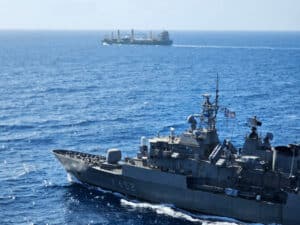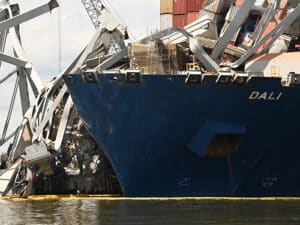
Union calls cruise ship accident wake-up call
Written by Marine Log Staff The grounding of a cruise ship Costa Concordia should serve as a wake-up call to the shipping industry, says maritime professional union Nautilus International.
The grounding of a cruise ship Costa Concordia should serve as a wake-up call to the shipping industry, says maritime professional union Nautilus International.
As we reported earlier, the ship, carrying some 4,234 passengers and crew, grounded on sandbar near the island of Giglio, Italy, on Jan. 13—Friday the 13th. The ship came to rest on its side and tour a gash in its hull. At least 3 were confirmed killed in the accident and another 40 are still unaccounted for, according to th latest report.
The union—which represents 23,000 ship masters, officers, ratings and other shipping industry staff—says the incident involving the Italian-flagged cruise ship Costa Concordia is the latest in a series that have highlighted its long-standing concerns over safety.
“In this, the centenary of the loss of the Titanic, major nostalgia industry is already in full flow—but it is essential that everyone recognizes that the Titanic offers lessons for today and that there are contemporary resonances that should not be lost,” says general secretary Mark Dickinson.
In particular, Nautilus is concerned about the rapid recent increases in the size of passenger ships—with the average tonnage doubling over the past decade.
“Many ships are now effectively small towns at sea, and the sheer number of people onboard raises serious questions about evacuation,” Dickinson points out.
Continues Dickson: “Nautilus is by no means alone in voicing concern at underlying safety issues arising from the new generation of ‘mega-ships’—whether they be passenger vessels carrying the equivalent of a small town or containerships with more than 14,000 boxes onboard. Insurers and salvors have also spoken about the way in which the sheer size and scale of such ships presents massive challenges for emergency services, evacuation, rescue, and salvage—and we should not have to wait for a major disaster until these concerns are addressed.”
The grounding of the containership M/V Rena on the Astrolabe Reef off of Tauranga, New Zealand, raised alarms concerning the readiness of the shipping and salvage industry to deal with the growing number of mega-containerships. Maritime attorney Andrew Chamerlain of Holman Fenwick Willan spoke to the legal, political and economic challenges during a Maritime London luncheon address on Jan. 11.
“Shipping will sooner or later face its ‘Deepwater Horizon’ moment and the consequences may well result in a complete change in the accepted liability regimes and even the traditionally accepted insurance arrangements for such large vessels,” Chamberlain said during his luncheon address.
Says Dickinson, “The growth in the size of such ships has also raised questions about their watertight integrity and fire-fighting protection,” he adds. “In an address to a conference on the safety of large passenger ships in 2000, the then secretary-general of the International Maritime Organization, William O’Neil, cited 12 passenger ship accidents in the previous six years and noted “…in retrospect we can see that it was to some extent a matter of luck—good weather, calm seas, and other ships in the vicinity, for example—that very few lives were lost.”
“We believe that more attention needs to be given to such issues as the adequacy of life-saving appliances, and the quality and quantity of crews and their training and experience in operating these vessels and dealing with emergency situations, including evacuation,” Dickinson says.
Nautilus says it is essential that inquiries into the Costa Concordia grounding examine reports of an electrical problem onboard—an issue on which the union raised concern following an explosion and loss of power onboard Cunard’s Queen Mary 2.
It is essential that ships are built for safety, with adequate redundancy rather than a prescriptive minimum, the Union argues.
It says the inquiries should also address human factor issues including seafarers’ working hours and adequate manning of bridge and engine room. “Investigations also need to focus on crew competence and training issues,” Dickinson adds.
The Union is calling for a thorough review of regulations governing the construction and operation of passenger vessels—in particular, standards of stability and watertight integrity. Attention needs to be paid to existing evacuation systems and more innovative systems for abandonment.
January 15, 2012





Leave a Reply
You must be logged in to post a comment.